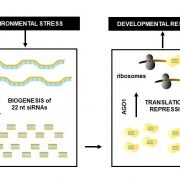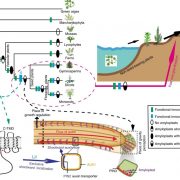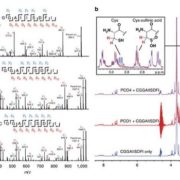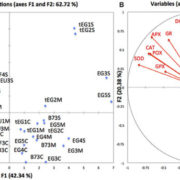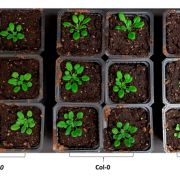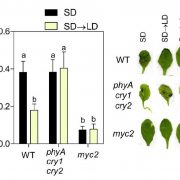Review: The metabolic response to drought (J Exp Bot) ($)
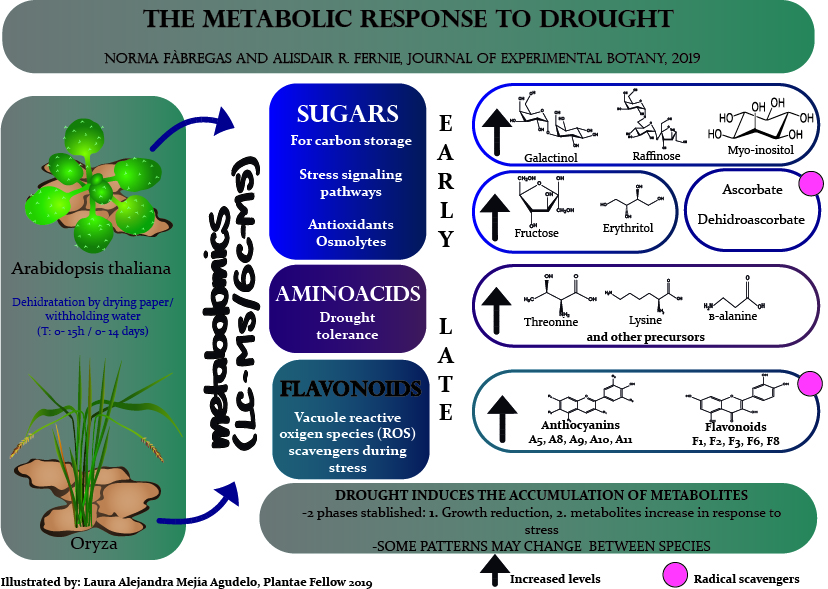 Understanding environmental stress in plants is undoubtedly important due to the consequences of climate change in crop productivity and survival of plants. Metabolomics based on liquid chromatography and gas chromatography coupled to mass spectrometry (LC-MS, GC-MS) allows an understanding of the metabolic profile changes of plants in response to stress. Fàbregas and Fernie review and compare the mechanisms that plants (Arabidopsis and rice) display in response to water stress (by dehydration or withholding water) using metabolic data from several independent studies. Drought stressed plants activate a series of responses including: the increase of sugars (as myo- inositol, raffinose, galactinol, mannose, glucose, among others) for supply of carbohydrates and for radical scavenging, increases in levels of amino acids (branched and aromatic), and increases in levels of flavonoids (anthocyanins and flavonols) as vacuole reactive oxygen species scavengers during the stress. The authors conclude, “Overall, metabolic data from independent studies reviewed herein show that drought generally induces the accumulation of primary metabolites.” (Summary by Laura Alejandra Mejía Agudelo) J. Exp. Bot. 10.1093/jxb/ery437
Understanding environmental stress in plants is undoubtedly important due to the consequences of climate change in crop productivity and survival of plants. Metabolomics based on liquid chromatography and gas chromatography coupled to mass spectrometry (LC-MS, GC-MS) allows an understanding of the metabolic profile changes of plants in response to stress. Fàbregas and Fernie review and compare the mechanisms that plants (Arabidopsis and rice) display in response to water stress (by dehydration or withholding water) using metabolic data from several independent studies. Drought stressed plants activate a series of responses including: the increase of sugars (as myo- inositol, raffinose, galactinol, mannose, glucose, among others) for supply of carbohydrates and for radical scavenging, increases in levels of amino acids (branched and aromatic), and increases in levels of flavonoids (anthocyanins and flavonols) as vacuole reactive oxygen species scavengers during the stress. The authors conclude, “Overall, metabolic data from independent studies reviewed herein show that drought generally induces the accumulation of primary metabolites.” (Summary by Laura Alejandra Mejía Agudelo) J. Exp. Bot. 10.1093/jxb/ery437


